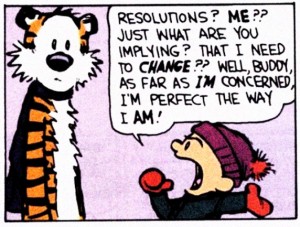 The following quote was the inspiration behind this sermon, but – in the end – the quote did not make it into the sermon: “Pray that I may never be satisfied with what is easy,” you say. I’ve already prayed. Now it is up to you to carry out that fine resolution. St. Josemaria Esciva, The Way #39
The following quote was the inspiration behind this sermon, but – in the end – the quote did not make it into the sermon: “Pray that I may never be satisfied with what is easy,” you say. I’ve already prayed. Now it is up to you to carry out that fine resolution. St. Josemaria Esciva, The Way #39
I’m also going to get a bit of mileage out of this one as it will appear as an article in the Billings Gazette on January 11th.
———-
Legend has it that one day Socrates and Plato were walking down the beach, deep in conversation and Plato had expressed to Socrates his desire to gain the wisdom and knowledge that Socrates had. Socrates didn’t answer him, but instead said, “Walk with me into the ocean.” So, they turned and walked into the sea together.
Now, in your imagination, picture that happening: Student and teacher, two of the greatest philosophers of history, striding into the surf side by side.
The water started out around their ankles, then rose up to their knees. As the water got higher Plato wondered to himself, “What is the lesson my master is trying to teach me?”
When the water was shoulder height, Socrates asked Plato, “What is it exactly you want from me?” “Knowledge,” Plato answered, at which point Socrates abruptly grabbed Plato’s head and pushed him down under the water. After a half a minute or so Socrates let Plato up and asked him again, “What is it you want?” “Knowledge,” was again Plato’s answer, at which point Socrates shoved him back down under the water.
After a time, when Plato ran out of air, he began to struggle to get his head above the surface. He punched and kicked and grabbed to get free, but Socrates was a strong man and held him down. At the last moment before Plato blacked out, Socrates let him up and asked that same simple question, “What is it you want?” Plato coughed and spluttered finally responding, “Air! I need air!” Socrates calmly stated, “When you desire knowledge as much as you desired a breath of air, then you shall have it.”
Each year, we make our New Year’s resolutions, but really, how seriously are we about fulfilling them? I suppose that Plato could have made a resolution, “Be it resolved that I will gain true knowledge this year,” but as Socrates so politely pointed out to him, resolving to do something is quite a bit more than simply saying you want it. Truthfully, it’s really not a matter of wanting, who doesn’t want to lose weight or be a better a person? Perhaps the question should be, “What are you willing to sacrifice?” In the case of Plato, in order to truly have knowledge, Socrates said that he had to want it as much as he wanted air to breathe, as much as he wanted life itself. So what are you willing to sacrifice in order to fulfill your resolutions?
And I wonder, if you make a resolution to live healthier, regularly balance the checkbook, quit swearing and all that, have you ever made a resolution to God? “Be it resolved that I will love the Lord my God more deeply.” “Be it resolved that my life will be a witness to His love.” “Be it resolved that I will work to fulfill my Baptismal Covenant.” “Be it resolved that I will accept His forgiveness.” And if you make these resolutions to God, then how badly do you want them? What are you willing to sacrifice of yourself in order to fulfill them?
I resolve to love God as long as it’s convenient? As long as it doesn’t really cost me anything? I resolve to forgive others as I have been forgiven, except… except you know who! I will seek to serve Christ in all persons, as long as they are like me. I resolve to faithfully continue in the fellowship and the breaking of bread, as long as it fits in with my schedule. Or do you want these things as much as you want air to breathe? As much as you desire your very life?
You’ve made your resolutions to lose weight and all that, now make your resolutions to God and desire to fulfill them as much as you desire air to breathe? As much as Jesus desires you.
